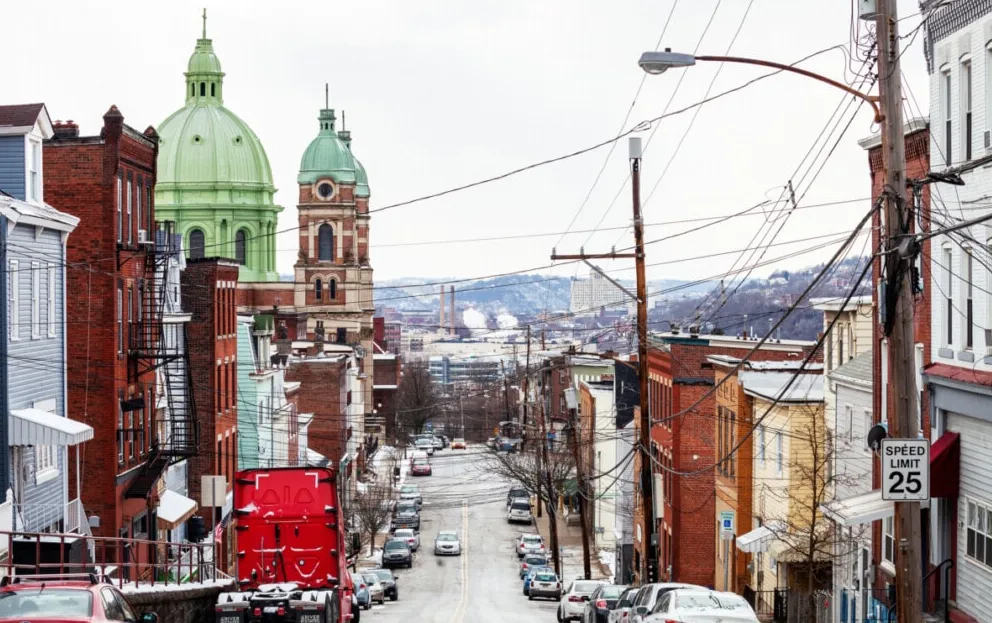Moving your family to a new city is an exciting yet daunting task. Pittsburgh, with its rich history, vibrant culture, and family-friendly atmosphere, is a great place to call home. However, relocating to any new city requires careful planning to make the transition smoother. This guide will give you practical tips for moving your family to Pittsburgh, so the journey feels less overwhelming and more like an adventure. Follow these steps, and you’ll soon settle into your new home without unnecessary stress.
Contents
- 1 1. Explore Schools and Educational Opportunities First
- 2 2. Embrace Pittsburgh’s Unique Transportation Options
- 3 3. Focus on Finding Family-Friendly Housing
- 4 4. Prepare for Pittsburgh’s Changing Weather
- 5 5. Get Involved in the Community Early On
- 6 6. Learn the Layout of the City
- 7 7. Budget for Local Taxes and Cost of Living
- 8 8. Take Advantage of Pittsburgh’s Outdoor Spaces
- 9 9. Stay Open to Pittsburgh’s Cultural Experiences
- 10 Conclusion
1. Explore Schools and Educational Opportunities First
One of the top concerns for families relocating is finding the right schools. Pittsburgh offers a variety of public, private, and charter schools, so start by researching which district aligns best with your educational preferences. Consider looking into specialized programs like STEM, arts, or language immersion if your children have specific interests. It’s also helpful to visit schools in person if possible or attend virtual open houses to get a feel for the community. This research ensures your children receive the education that fits their needs.
2. Embrace Pittsburgh’s Unique Transportation Options
Pittsburgh has its quirks, and the transportation system is no exception. Known for its hills and bridges, the city offers various ways to get around, from biking to public transit options like buses and light rail. While driving may seem convenient, you might find yourself navigating steep roads and tight parking spaces. Understanding the transportation options in advance will help you determine if you need to buy a family car or can rely on public transport. This can make a significant difference in your daily commute and how you explore your new city.
3. Focus on Finding Family-Friendly Housing
When searching for a home, consider the layout and amenities that suit a growing family. Pittsburgh’s housing market varies from modern apartments to charming historic homes, so there’s something for every taste. Focus on factors such as proximity to parks, playgrounds, and schools, as well as yard space for outdoor activities. If you’re moving with pets, ensure that the neighborhood is pet-friendly too. A home that suits all family members will make the transition smoother and more enjoyable for everyone.
4. Prepare for Pittsburgh’s Changing Weather
Pittsburgh experiences all four seasons, each with its own personality. Winters can be cold and snowy, while summers are warm and humid. Be sure to stock up on appropriate clothing and gear for every season, especially for the kids. It’s also a good idea to plan out activities for indoor fun during the colder months, such as visits to local museums or starting new family hobbies. Knowing how to handle the seasonal shifts will help your family adapt more quickly.
5. Get Involved in the Community Early On
Building a sense of community after moving is essential for both adults and children. Pittsburgh is known for its friendly residents, and there are plenty of ways to meet people, from joining local clubs to volunteering in neighborhood events. Signing up for community activities can help your family create bonds and feel more integrated into the new environment. Consider attending local festivals or exploring family-friendly destinations like the Pittsburgh Zoo or Carnegie Science Center. The earlier you start building connections, the faster your new city will feel like home.
6. Learn the Layout of the City
Pittsburgh is divided into various unique neighborhoods, each with its own personality and charm. Spend time learning the layout of the city to understand where the best places for shopping, dining, and recreation are. As you explore, you’ll also get a sense of the best neighborhoods in Pittsburgh. That will help you make informed decisions about where to settle if you haven’t yet chosen a home. Familiarizing yourself with your surroundings will ease the stress of navigating a new place and help your family quickly find favorite spots.
7. Budget for Local Taxes and Cost of Living
Understanding the financial aspects of relocating to Pittsburgh is crucial for your family’s budget. The city has a local income tax, and property taxes can vary depending on the neighborhood. Additionally, Pittsburgh’s cost of living is generally lower than in many other major cities, but it’s still important to plan for differences in utility costs, groceries, and everyday expenses. Budgeting for these expenses early will ensure you avoid financial surprises down the road. Having a clear picture of your financial situation will allow for a more comfortable transition.
8. Take Advantage of Pittsburgh’s Outdoor Spaces
Pittsburgh is known for its parks and green spaces, offering numerous opportunities for families to enjoy the outdoors. Visit the city’s many parks, including Schenley Park and Frick Park, to hike, picnic, or simply enjoy nature with the kids. Many parks offer playgrounds, dog parks, and sports facilities, making them ideal spots for family outings. Exploring the city’s outdoor spaces is not only a great way to relax but also an opportunity to meet other families and learn more about your community. Whether you’re looking for a quiet afternoon or an action-packed day of adventure, Pittsburgh’s green spaces provide something for everyone.
9. Stay Open to Pittsburgh’s Cultural Experiences
Pittsburgh boasts a thriving arts and culture scene, with attractions that appeal to all ages. Make time to explore the city’s museums, such as the Andy Warhol Museum, or catch a family-friendly show at the Benedum Center. You’ll also find plenty of cultural festivals throughout the year, celebrating everything from food to music. Introducing your family to these experiences early will enrich your move and help everyone feel more connected to the city’s vibrant lifestyle. From art installations to community performances, Pittsburgh’s cultural scene will spark creativity and curiosity for all ages.
Conclusion
Relocating your family to Pittsburgh is an exciting journey filled with opportunities. By planning ahead and considering the unique aspects of the city, you can make the move a positive experience for everyone. Whether it’s choosing the right school, finding your new home, or embracing Pittsburgh’s culture, these steps will help your family settle in smoothly. Remember that moving is a process, and each phase brings you closer to building a new life. With the right approach, you’ll soon feel at home in Pittsburgh’s welcoming embrace.









